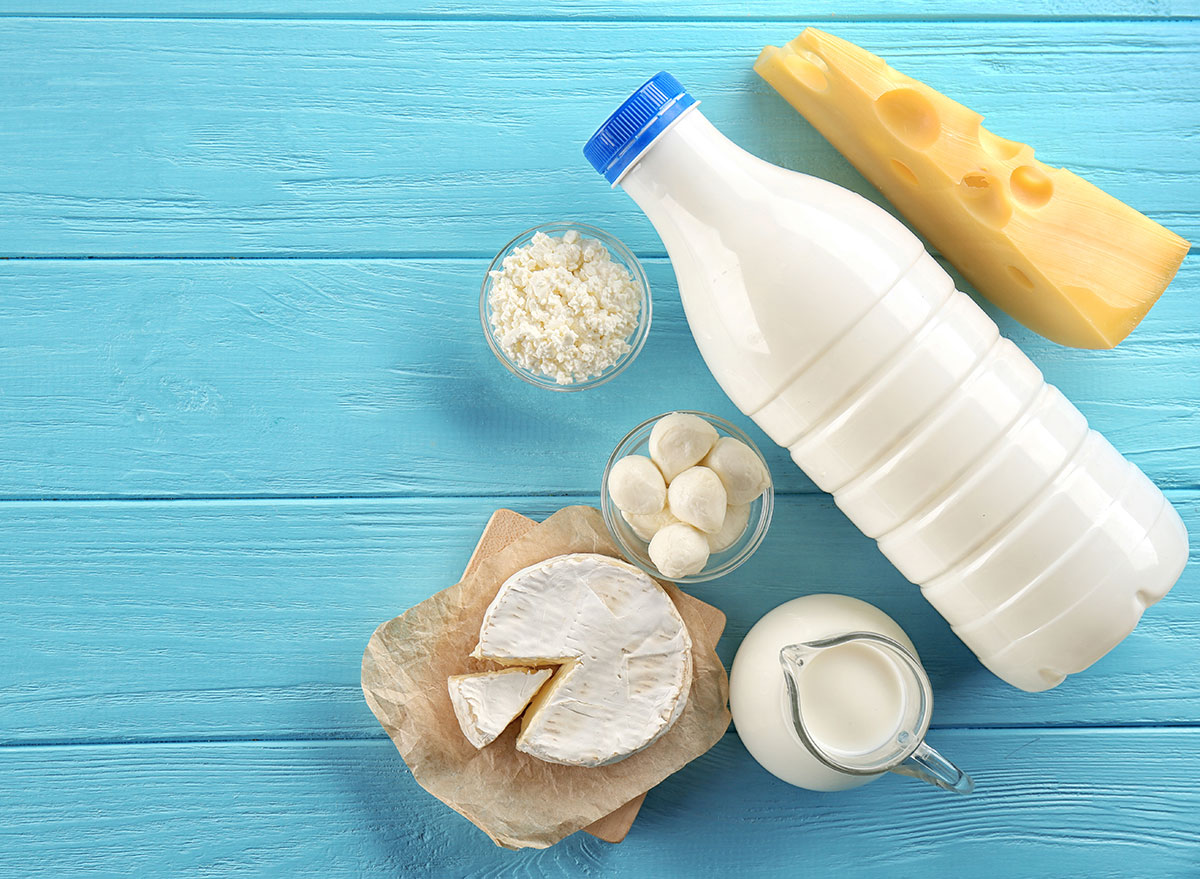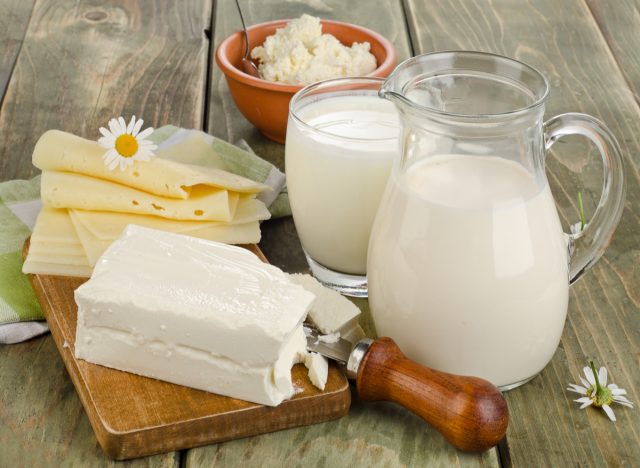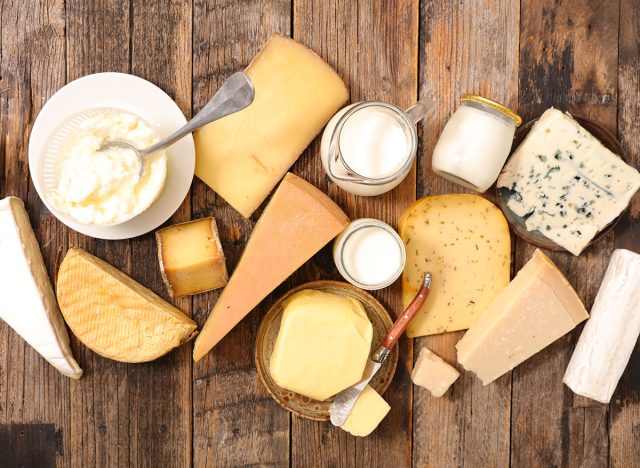Do Dairy Foods Really Cause Inflammation? A Dietitian Explains

Finding ways to manage chronic inflammation can be easier said than done, in part, thanks to all of the confusing, and sometimes conflicting, information on the internet. While most people agree that including olive oil, salmon, and walnuts in a diet can help reduce inflammation, other foods get vilified as being pro-inflammatory, even if there isn't strong evidence to support these claims in the medical literature.
And among the many foods that are on the "naughty" list when it comes to reducing chronic inflammation, dairy foods seem to constantly appear.
But do dairy foods really cause inflammation, or is this link just one more myth that has spiraled out of control? Read to find out, and for more healthy eating tips, check out 7 Surprising Foods You Don't Have To Give Up To Lose Weight.
What Is Inflammation?

Before we dig into whether dairy causes inflammation, it is important to understand what inflammation is in the first place.
In a nutshell, inflammation is the body's natural response to protect itself against harm. There are two types of inflammation — chronic and acute. Acute inflammation occurs when a person get injured—think about your inflamed ankle when you hurt it. This type of inflammation is typically localized and it goes away once the injury or the infection is gone.
Chronic inflammation, on the other hand, can linger in the body. This type of inflammation can be a result of a slew of factors, including smoking cigarettes, having obesity, and certain dietary choices. It can also be caused by the presence of an autoimmune disease or an infection that won't go away.
Having chronic inflammation is linked to outcomes that include an increased risk of certain cancers and diabetes. And the prevalence of diseases associated with chronic inflammation is anticipated to increase as the years go on.
Diets that promote inflammation are high in refined starches, sugar, saturated and trans-fats, and low in omega-3 fatty acids, natural antioxidants and fiber from fruits, vegetables, and whole grains. But what about dairy? Does eating dairy promote inflammation, or can it be a part of a balanced, anti-inflammatory diet?
Does Dairy Cause Inflammation?

Dairy foods are known to be delicious, bone health-supporting additions to our diets. But, cutting out dairy has become a trendy habit to adopt for a variety of reasons, with one being that it is rumored to potentially trigger a pro- inflammatory response in the body.
Partially to blame is that some dairy foods contain saturated fat, a nutrient that is linked to inflammation. But according to a 2017 review published in Critical Reviews in Food Science and Nutrition, based on data from 52 human clinical trials, dairy appears to actually have anti-inflammatory effects on the body, regardless of the fat content of the dairy food.
And a systematic review evaluating the effect of dairy product (milk, cheese, and yogurt) and dairy protein consumption on inflammation in adults was published in 2021, with results showing that dairy consumption has either no effect on inflammation or slight anti-inflammatory effects.
So, despite the claims made by certain influencers that dairy causes inflammation, the medical literature appears to suggest otherwise. Just keep in mind that while sipping on a glass of dairy milk appears to be okay on an anti-inflammatory diet, choosing options that have large quantities of added sugar may potentially work against your health goals.
Options like chocolate milk and flavored milk drinks formulated with sugar, corn syrup, or other sugar-containing ingredients may not have the anti-inflammatory or neutral affects you are looking for, as sugar can have pro inflammatory effects.









